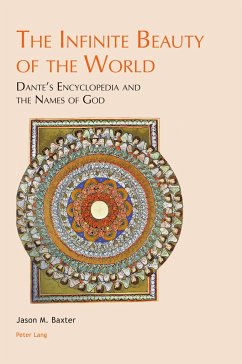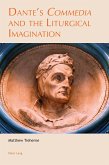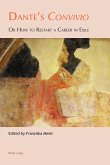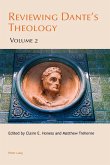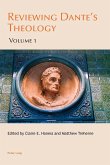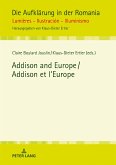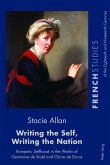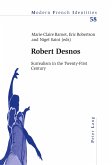This book proposes a radically new interpretation of the Comedy's encyclopedism by focusing on Dante's work in light of the medieval imago mundi tradition. The work opens with a discussion of how the Florentine poet transgressed every generic boundary in his effort to gather «into one volume» a vast and varied set of creatures, places, landscapes, historical and mythological persons, weather conditions, and arts. It then goes on to show that this extraordinary encyclopedic breadth should be understood in the terms of Boethian and Augustinian spiritual exercises of envisioning the whole world in the mind's eye, which themselves became the interpretive framework for the spiritual ends behind medieval encyclopedic texts. By bringing attention to Latin Platonism and twelfth-century authors (such as Alan of Lille, Bernard Silvestris, William of Conches, Hugh of St. Victor, and Thierry of Chatres), this book provides compelling new readings of the De vulgari eloquentia, as well as provocative insights into key figures (such as Brunetto Latini, Pier della Vigna, and Ulysses) and key passages (Purgatorio 28, Paradiso 26, and Paradiso 33).
«The Infinite Beauty of the World offers a fascinating interpretive journey towards richer appreciation of the Commedia as a cosmological poem. Baxter compellingly invites us to encounter Dante anew as a poet who seeks to show his readers the whole of reality while embracing, in wonder, its divine mystery.» (Vittorio Montemaggi, Senior Lecturer in Religion and the Arts, King's College London, author of Reading Dante's Commedia as Theology: Divinity Realized in Human Encounter)
«Jason Baxter's new book provides the first extensive study of the tradition of the imago mundi and its significance for Dante. Drawing on a wealth of materials - biblical commentaries, glosses on ancient poets, spiritual treatises, and encyclopaedic works of various kinds - Baxter explores how medieval culture developed a rich set of practices of mental visualization so as to 'see' the cosmos in its totality from above, and he shows how Dante exploited such traditions. Elegantly written and richly documented, Baxter's book offers an important new approach to Dante's encyclopedism.» (Simon Gilson, Agnelli-Serena Professor of Italian, University of Oxford)
«Jason Baxter's new book provides the first extensive study of the tradition of the imago mundi and its significance for Dante. Drawing on a wealth of materials - biblical commentaries, glosses on ancient poets, spiritual treatises, and encyclopaedic works of various kinds - Baxter explores how medieval culture developed a rich set of practices of mental visualization so as to 'see' the cosmos in its totality from above, and he shows how Dante exploited such traditions. Elegantly written and richly documented, Baxter's book offers an important new approach to Dante's encyclopedism.» (Simon Gilson, Agnelli-Serena Professor of Italian, University of Oxford)

